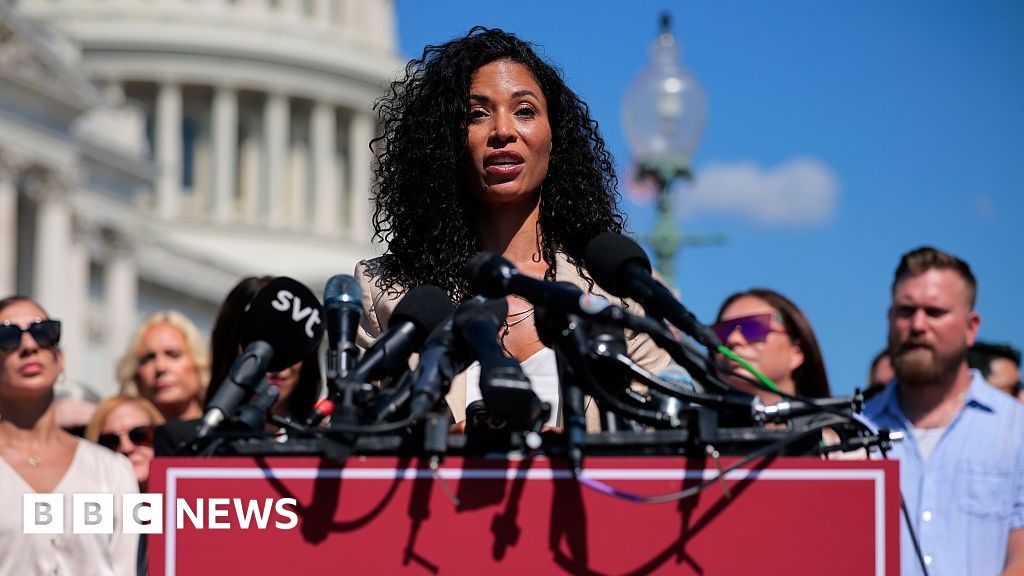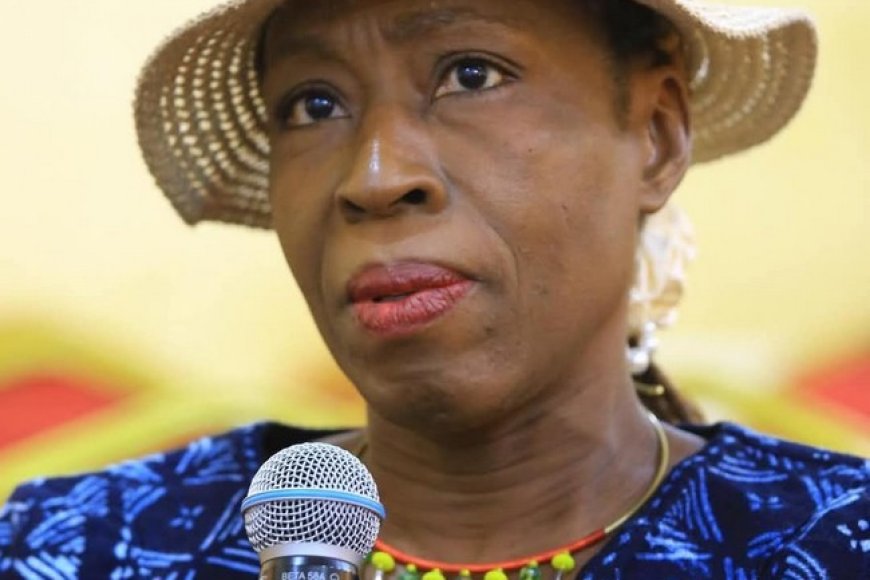BBC Unmasks Boss of Sex-Trade Ring in Dubai's Glamour Districts
A BBC Eye Investigations report has identified Charles Mwesigwa, a man allegedly running a degrading sex-trade ring in the glamorous districts of Dubai. The investigation reveals how vulnerable women, primarily from Uganda, are being exploited.
The Investigation's Findings
The BBC World Service investigation uncovered disturbing details of the operation. Charles Mwesigwa, who claims to be a former London bus driver, reportedly told an undercover reporter that he could provide women for sex parties starting at $1,000. The women are described as "open-minded" and able to fulfill a wide range of requests. Rumors of these activities have circulated online for years, often associated with the hashtag #Dubaiportapotty.
Young Ugandan women reported being misled about the nature of the work they would be undertaking, believing they were traveling to the UAE for jobs in supermarkets or hotels. The reality, according to the investigation, was far darker.
Exploitation and Abuse
"Mia," whose name has been changed to protect her identity, stated that one of Mr. Mwesigwa's clients regularly asked to defecate on the women. She also claimed that she was trapped by Mr. Mwesigwa's network. Mr. Mwesigwa denies these allegations, claiming he only helps women find accommodation and that they attend parties with him due to his connections.
The investigation also found that two women linked to Mr. Mwesigwa have died after falling from high-rise apartments. While their deaths were ruled as suicides, their friends and family believe the police investigation was insufficient.
The Stories of Monic and Kayla
Monic Karungi, one of the women who died, arrived in Dubai from western Uganda. According to "Keira," who lived with her, Monic shared a flat with dozens of other women working for Mr. Mwesigwa. Monic reportedly believed she was going to work in a supermarket. Her sister, Rita, confirms this. Mia says Mr. Mwesigwa was violent when she expressed a desire to return home.
Mia stated that she was immediately told she owed Mr. Mwesigwa £2,000, which doubled within two weeks. This debt covered air tickets, visas, accommodation, and food, forcing her to work relentlessly to pay it off. A relative of Monic's, called Michael, claims Monic told him she owed Mr. Mwesigwa over $27,000 after several weeks.
Extreme Fetishes and Lack of Police Assistance
Mia described how clients, mainly white Europeans, had extreme fetishes. "There's this one client, he poops on girls. He poops and he tells them to eat the shit," she said. Another woman, "Lexi," shared a similar story. She described being offered 15,000 Arab Emirates Dirham to be gang-raped, urinated on, and beaten, with an additional 5,000 for being recorded eating feces.
Lexi tried to seek help from the Dubai police, but claims they dismissed her, stating that Africans cause problems for each other and that they didn't want to get involved. The Dubai police did not respond to the BBC's request for comment.
Tracing Charles Mwesigwa
Finding Charles Mwesigwa proved challenging. Using open-source intelligence, undercover research, and information from a former member of his network, the BBC traced him to Jumeirah Village Circle, a middle-class neighborhood in Dubai. An undercover reporter, posing as an event organizer, confirmed that Mr. Mwesigwa supplied women for degrading sex acts.
Mr. Mwesigwa boasted that he had "like 25 girls" who are "open-minded" and can do "pretty much everything." He quoted prices starting at $1,000 per girl per night, but more for "crazy stuff." When asked about "Dubai porta potty," he replied, "When I say open-minded… I will send you the craziest I have."
The Operations Manager's Testimony
Troy, who claims to have been an operations manager for Mr. Mwesigwa's network, provided further details. He said Mr. Mwesigwa pays off security at nightclubs to allow his women to find clients. Troy also alleges that Mr. Mwesigwa uses other people's names to hire cars and apartments to avoid having his own name on paperwork.
The Death of Monic Karungi
Four days before her death, Monic posted a selfie from Al Barsha. Mia says Monic had been regularly arguing with Mr. Mwesigwa and had found a way out of his network, securing a new job. She moved to a different apartment and fell from its balcony on May 1, 2022.
Michael, Monic's relative, says the police told him they had stopped their investigation after finding drugs and alcohol in her apartment and only her fingerprints on the balcony. Michael also claims he found Charles Mwesigwa in bed with two women and that Mwesigwa said, "Dubai is mine… Embassy is me, I'm the embassy. [Monic's] not the first to die. And she won't be the last." Mia and Keira independently confirmed this conversation.
Similarities to Kayla Birungi's Death
Monic's death shares similarities with that of Kayla Birungi, another Ugandan woman who died after falling from a high-rise in Dubai. Evidence suggests that the apartment was managed by Charles Mwesigwa. While Kayla's family was able to repatriate her body, Monic's remains were never returned and she was likely buried in Dubai's Al Qusais Cemetery.
Exploitation and Trafficking in Uganda
Monic and Kayla were part of a wider pipeline connecting Uganda to the Gulf. As Uganda struggles with youth unemployment, working abroad has become a large industry, but it carries significant risks. Mariam Mwiza, an activist against exploitation, has helped rescue over 700 people from the Gulf who were promised legitimate jobs but ended up being sold into prostitution.
| Victim | Details |
|---|---|
| Monic Karungi | Ugandan woman who died in Dubai after falling from a high-rise. Family was unable to repatriate her body. |
| Kayla Birungi | Ugandan woman who died in Dubai after falling from a high-rise. Family was able to repatriate her body. |
Gaza Child Malnutrition Crisis
Separately, Gaza is experiencing a severe child malnutrition crisis due to the ongoing conflict and humanitarian aid obstacles. UNICEF reports that one in three children under two are acutely malnourished in northern Gaza. This crisis is resulting in confirmed deaths and lifelong consequences for survivors, including stunted growth and impaired cognitive development.
 Visit the website
Visit the website




